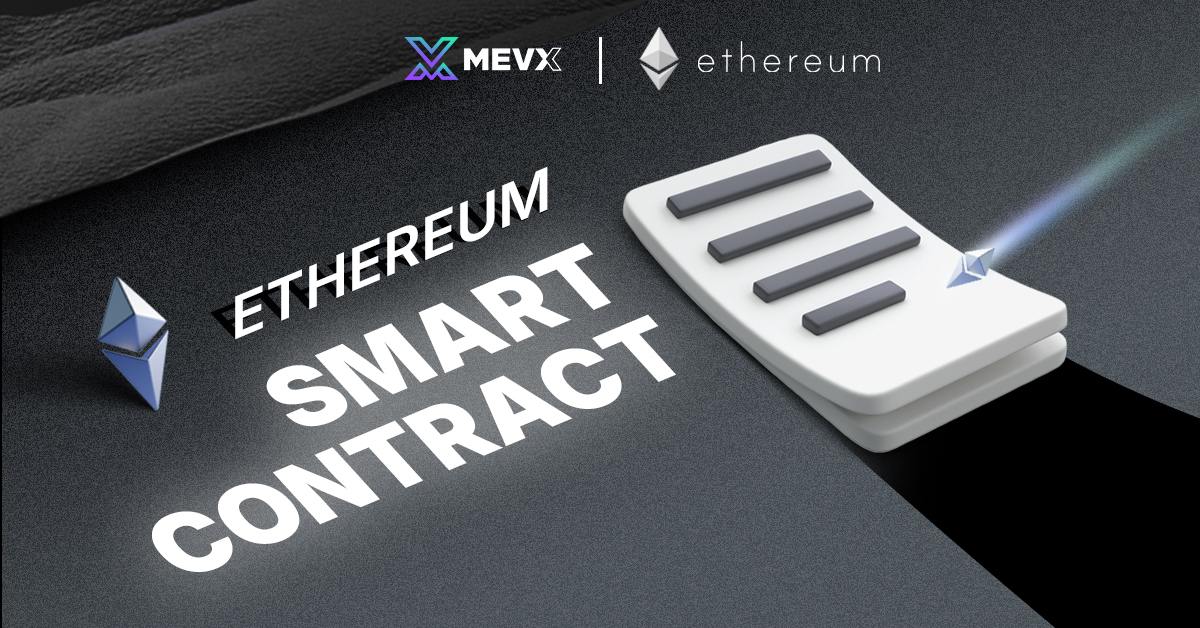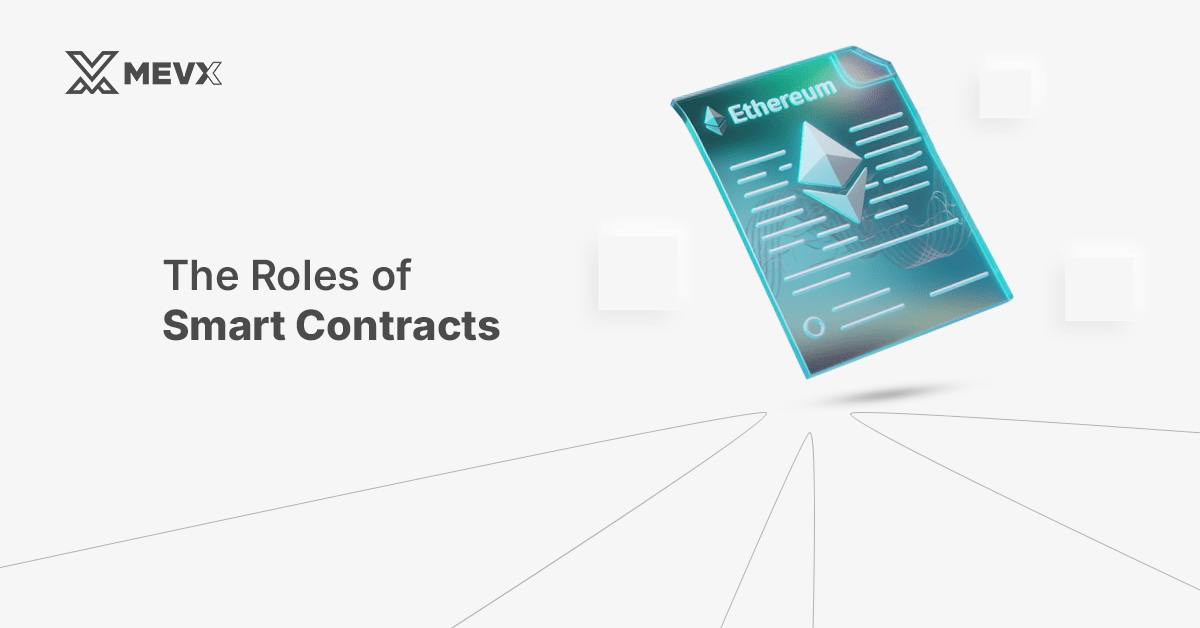Blockchain technology has long since moved past the development and introduction of Bitcoin. It also introduced programmable contracts that function independently from any third-party interference. Ethereum, launched in 2015, was the first platform to host “smart contracts,” serving as a backbone for the dApps revolution. In this article, let’s explore smart contracts, how they function, and why they form the Ethereum ecosystem’s core necessity.

Ethereum and Smart Contract
What Are Smart Contracts?
Smart contracts are trust-executable lines of code that automatically enforce the terms of an agreement. In a smart contract, a set of terms is directly programmed into codes and stored on a blockchain network. Traditional contracts, therefore, rely on legal intermediaries to enforce terms, while smart contracts avoid the need for trust and human intervention by making transactions transparent and automated.
For example, imagine a vending machine as a form of a simple smart contract: you put money into it, make your selection, and receive your item without the intervention of a cashier. Smart contracts do exactly that but with a great deal more flexibility and far greater possible applications. They rely upon “if-then” statements; in other words, when something happens, then a response is triggered.
How Do Smart Contracts Work?
Smart contracts on Ethereum are generally written in a specialized programming language called Solidity. Once written, a contract gets uploaded to the Ethereum blockchain and runs on its own. Here’s a simplified look at some of the basic steps in building and developing a smart contract:
- Define the Contract: The developer would translate the terms and conditions into code, defining under what circumstances it will execute.
- Deploy on Blockchain: The smart contract code is deployed on the Ethereum blockchain and becomes immutable; therefore, it cannot be changed.
- Executing Terms: Whenever the predefined conditions come into effect, the contract executes the actions automatically such as transferring funds, issuing tokens, or processing data.
- Data Storage: Results will be stored on the blockchain, creating a public record that is transparent and secure.
Since smart contracts are publicly viewable and verifiable on-chain, users can confidently interact with them, knowing the terms will be upheld.
Key Benefits of Smart Contracts
Smart contracts offer considerable benefits over traditional contracts in many respects, including:
- Autonomy and Trustlessness: Smart contracts remove the need for intermediaries, thus reducing costs and removing the potential points of failure.
- Transparency: Smart contracts, once on-chain, are publicly visible to all parties concerned, so total transparency is assured.
- Immutability: The code cannot be altered once deployed, ensuring that terms are secure and tamper-proof.
- Automatization: Transactions are performed immediately once conditions are met, without delay or human intervention.
- Cost-effective: Smart contracts significantly reduce costs associated with traditional transactions by eliminating intermediaries.
The Roles of Smart Contracts in the Ethereum Ecosystem
Ethereum’s introduction of smart contracts has shifted it from a cryptocurrency platform to a versatile ecosystem hosting a wide array of dApps and blockchain solutions. Smart contracts are crucial for several reasons:

The Roles of Smart Contract
1. Foundation for Decentralized Applications (dApps)
The range of applications on Ethereum supports an enormous breadth of industries that range from finance to gaming, healthcare, supply chain management, and more. Using smart contracts, a developer can build applications that automatically operate, having the users’ transactions and interactions pre-programmed under a set of predetermined rules without the need for any central authority overseeing them. Setting up a new frontier for “trustless” apps, this will now enable peer-to-peer interactions on a massive scale.
2. Powering Decentralized Finance (DeFi)
Smart contracts power decentralized finance, DeFi- one of the fastest-growing sectors on Ethereum. DeFi Applications implement smart contracts to automate various financial services, normally overseen by banks, like lending and borrowing or trading assets such as stocks and bonds. A DeFi lending platform, for instance, could automatically originate a loan and release collateral upon payment because of smart contracts operating on-chain, with no middleman intervening. As a result, this has reshaped financial services to be even more accessible and cost-efficient for users all around the world.
3. Enabling Tokenization and NFTs
Ethereum’s smart contracts also introduced token standards such as ERC-20 and ERC-721. Shared standards enabled developers to build tokens for various uses from digital assets to unique collectibles. ERC-20 tokens are fungible, an asset interchangeable with any other asset, serving for cryptocurrencies while ERC-721 tokens are non-fungible, as in NFTs (non-fungible tokens). In particular, these smart contract standards have let whole industries of NFT marketplaces, gaming, and digital art grow on top of Ethereum, where users can own and trade unique assets.
4. Governance and Decentralized Autonomous Organizations (DAOs)
Smart contracts allow for the creation of decentralized autonomous organizations (DAOs), which give members the power to vote and make collective decisions. A DAO acts according to rules that are enforced by smart contracts that realize the outcomes of member votes. This has allowed Ethereum communities to make decisions in a decentralized way, coming up with governance models that include more collaboration and transparency. For instance, Jito DAO is the governance organization on Ethereum that can enable voting through different stakeholders regarding the direction of projects and fund allocation in a completely transparent manner executed by smart contracts.
5. Interoperability with Other Blockchain Solutions
Smart contracts increase Ethereum’s interoperability with other blockchains because multi-chain transactions and activities become possible. Interoperability between ecosystems further increases because Ethereum smart contracts interact with solutions built on blockchains like Solana, Polkadot, and Binance Smart Chain. For instance, cross-chain bridges will securely enable the swapping and transfer of data from the Ethereum network into another blockchain network and vice versa, ensuring scalability in Ethereum use cases.
Real-World Use Cases of Smart Contracts
Applications involving smart contracts range from purely theoretical to influencing various industries and sectors, including:
- Supply Chain Management: Companies like IBM use the Ethereum smart contracts when tracing goods along a supply chain to ensure supply chain transparency and reduce fraud.
- Healthcare: Medical data can safely and securely be shared and verified across providers using smart contracts, ensuring patient privacy and data integrity.
- Insurance: Smart contracts can streamline claims processing by automatically verifying conditions and issuing payouts, reducing fraud and administrative costs.
Challenges and Future Potential
Indeed, with all their great potential come quite several challenges. First of all, with smart contracts being immutable, it is pretty distressing some bugs and errors are encoded in the code, which may result in irretrievable losses, as happened during popular hacks and bugs. While these issues have been dealt with, the security audits and standards have improved, making smart contracts even safer. Further, scalability in Ethereum often comes into question due to network congestion and high gas fees, which generally result in limited transaction efficiency. Ethereum is transitioning into Ethereum 2.0 to address these scalability issues while transitioning to Proof-of-Stake (PoS) consensus.
Conclusion
Smart contracts provide the backbone to the Ethereum ecosystem in ways that have fundamentally changed what could have been a basic cryptocurrency into a programmable, unstoppable, decentralized network with endless possibilities. In support of trustless, autonomous operations, smart contracts foster innovation in the fields of finance, art, and governance, among others. As Ethereum continues to evolve, so will smart contracts unraveling toward a more decentralized, transparent, and efficient digital world.
Share on Social Media:
